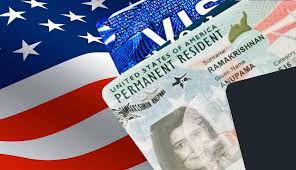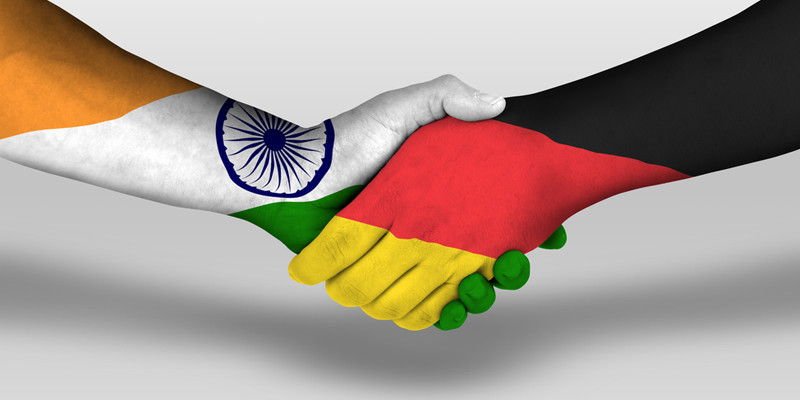The recent update by the U.S. Citizenship and Immigration Services (USCIS) to the guidelines for the EB-1 visa category represents a significant shift that could benefit a range of professionals, especially those from India. This policy change simplifies the process for applicants to demonstrate ‘extraordinary ability’ across various fields, including science, arts, education, business, and sports. The changes not only recognize team-based awards as valid evidence but also clarify other eligibility criteria.
Understanding the EB-1 Visa
The EB-1 visa is a prominent employment-based visa that allows foreign nationals with extraordinary ability to gain permanent residency in the United States. It extends not only to the primary applicant but also to their spouse and children, making it a compelling option for families looking to establish themselves in the U.S. The recent policy revisions open up new avenues for individuals in collaborative professions, making the EB-1 visa a more attractive choice, particularly for Indian professionals in fields like technology and research.
Who Stands to Benefit from the Changes?
Enhanced Recognition of Team Achievements
The most notable aspect of the new guidelines is the recognition of team-based awards as valid evidence of extraordinary ability. This change significantly benefits Indian professionals who work in fields characterized by collaboration and collective success.
Sectors Impacted:
- Technology: Engineers and developers engaged in award-winning projects can leverage team accolades to substantiate their qualifications.
- Sports: Athletes representing India in international competitions can now highlight their contributions to team achievements, such as victories in cricket tournaments or Olympic events.
- Academia and Research: Scholars and researchers involved in joint studies that have received international accolades will find it easier to demonstrate their contributions under the new guidelines.
Self-Sponsorship Opportunities
Another transformative aspect of the policy is the allowance for self-sponsorship under the EB-1A subcategory. Previously, many believed that this category was primarily for academics or those with employer sponsorship. However, this update enables professionals from diverse backgrounds—particularly those in tech and business—to apply independently. This shift could open the door for many Indian professionals who have previously felt restricted by traditional application processes.
Strategic Focus for Indian Professionals
For Indian professionals considering the EB-1A option, focusing on specific strategies will be crucial for maximizing their chances of success:
1. Document Team Contributions
Clearly outlining individual roles in team-based accomplishments is essential. Applicants should aim to demonstrate their direct impact on the success of the project or initiative.
2. Provide Objective Evidence
Gathering concrete evidence, such as patents, research publications, and details of leadership roles, will help strengthen their application. Clear documentation showcasing the significance of their contributions can significantly enhance their case.
3. Collect Supporting Documents
Letters of recommendation, media coverage, and other documentation can add weight to an application. The more comprehensive the documentation, the better the chances of demonstrating extraordinary ability.
The Challenge for EB-2 and EB-3 Visa Holders
While the updates are promising for EB-1 applicants, it is essential to recognize that those in the EB-2 and EB-3 categories may not experience substantial benefits. The long wait times and extensive backlogs for these visa categories continue to pose challenges.
Though Indian professionals stuck in EB-2 and EB-3 backlogs might explore the possibility of transitioning to the EB-1 category using the new team-based recognition rules, they still face the challenge of demonstrating extraordinary ability. As experts note, unless these professionals have significant achievements to showcase, the new guidelines may not yield immediate benefits for them.
Filing Fees and Application Process
The financial implications of applying for the EB-1 visa are also an essential consideration. The filing fee for Form I-140, the Immigrant Petition for Alien Worker, is $700 (approximately ₹58,779). Typically, this fee is borne by the sponsoring employer, but for self-petitioners under the EB-1A subcategory, the applicant must cover this cost.
Conclusion: A Pathway to Opportunity
In summary, the USCIS updates to the EB-1 visa guidelines mark a pivotal change that opens new opportunities for Indian professionals across various fields. By acknowledging team-based achievements and allowing for self-sponsorship, the updated rules make the path to U.S. residency more accessible for those with extraordinary abilities. As this new chapter unfolds, professionals should remain vigilant about documenting their achievements and strategically navigating the visa application process. With the EB-1 visa becoming a more viable option, Indian professionals can look forward to a promising future in the United States, enhancing both their personal and professional lives in this global landscape.




